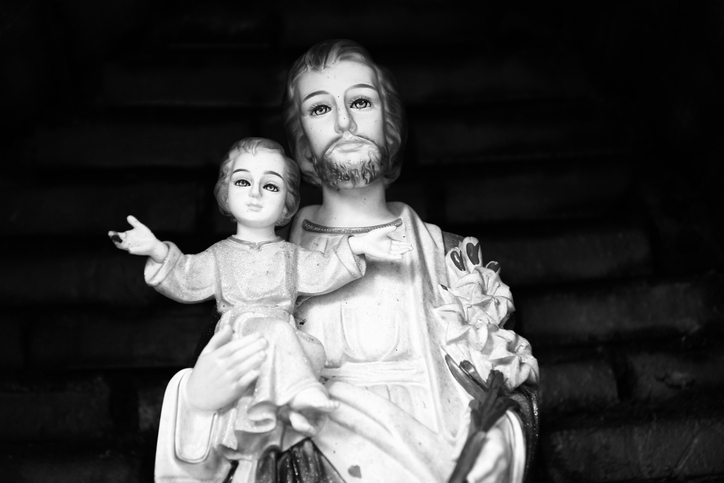The last ten days have been a quick succession of life-changing decisions made for me. State of emergency declaration. No gatherings of 250 people or more. Dine-in restaurants and bars closing. No gatherings of 50 people or more. Work from home. No gatherings of 10 people or more. Just stay home.*
Even just typing that feels so heavy and restricting. It feels like the world is closing in around me. My walls of safety seem to be crumbling before my eyes. As someone joked, “This week has been the longest and most difficult year of my life.”
It’s almost crazy to think that it was only Monday when I first felt the panic and chaos well up inside of me. Evil, in the form of fear, loneliness, panic, and loss of hope, filled my thoughts.
To combat this, a small group of us got together after work and prayed the Rosary. Prayed for healing, for illnesses, for those alone in this time, for each other, for the ability to feel God’s presence at a time like this.
It was then that amid all the chaos, I felt at peace.
During Lent, we are called. Yes, called to pray, to fast, to give alms, but also just called. Our God seeks a relationship with us. He calls our name in times like these. In times of darkness, He calls out with His light. In times of fear, He calls out to us with hope. In times of uncertainty, He calls out our names and promises us, 100% guarantees us, His love no matter the situation.
These are the times to listen for His voice. A little further from the distractions of the world, I ask you to listen. I ask you to acknowledge your fears, doubts, vulnerabilities, and trust in your God.
Last, I ask that you pray with me, either once or as a Novena:
O Great St. Rocco, deliver us, we beseech thee, from the scourges of God; through thy intercession, preserve our bodies from contagious diseases, and our souls from the contagion of sin. Obtain for us salubrious air; but, above all, purity of heart. Assist us to make good use of health, to bear suffering with patience; and, after thy example, to live in the practice of penance and charity, that we may one day enjoy the happiness which thou has merited by thy virtues.
St. Rocco, pray for us (say three times).
*These items are taken from press releases issued on the State of Michigan’s website and the Center for Disease Control’s website. Please refer to your own state’s website or CDC for your state’s information.
https://www.michigan.gov/coronavirus/ (Citation for Michigan’s State of Emergency declaration, no gatherings of 250 people or more, dine-in restaurants and bars closing.)
https://www.cdc.gov/coronavirus/ (Citation for no gatherings of 50 people or more and no gatherings of 10 people or more.)

Veronica Alvarado is a born and raised Texan currently living in Michigan. Since graduating from Texas A&M University, Veronica has published various articles in the Catholic Diocese of Austin’s official newspaper, the Catholic Spirit, and other local publications. She now works as the Content Specialist in Diocesan’s Web Department.




















